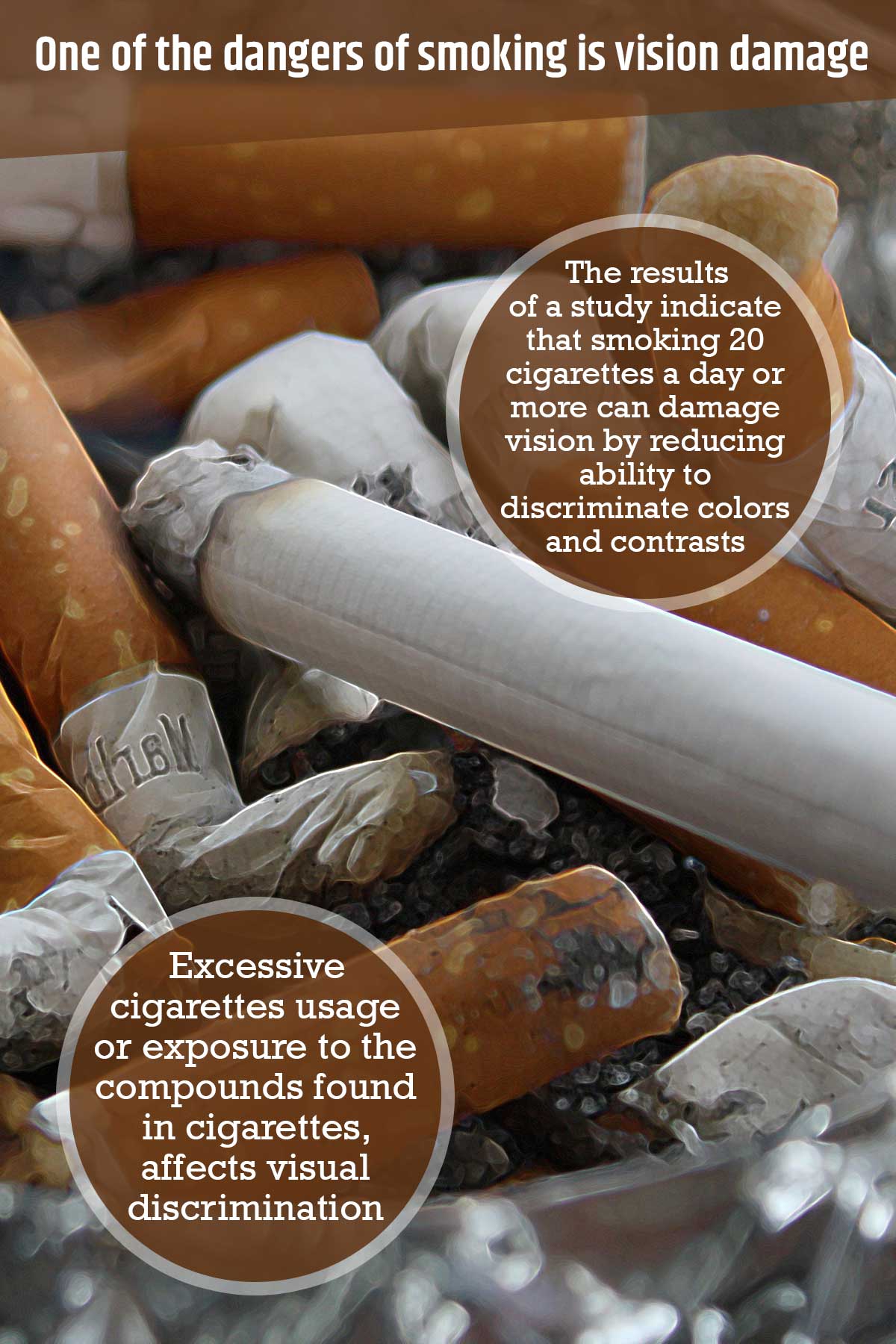Previous research has shown one of the dangers of smoking excessively is the risk of macular degeneration is doubled as well as yellowing and inflammation of the lens.
The results of a study indicate that smoking 20 cigarettes a day or more can damage vision by reducing ability to discriminate colors and contrasts.1✅ JOURNAL REFERENCE
DOI: 10.1016/j.psychres.2018.11.024
Excessive cigarettes usage or exposure to the compounds found in cigarettes, affects visual discrimination, which supports the existence of overall deficits in visual processing with tobacco usage.
It’s estimated by the CDC that 34.3 million adults in the U.S. still smoke cigarettes and that over 16 million of them live with a disease related to smoking, of which many affect the cardiovascular system.
The study participants consisted of one group of 71 healthy individuals who had smoked less than 15 cigarettes in their lifetime, and another group of 63 individuals who smoked 20 cigarettes or more a day who had been diagnosed with tobacco addiction, and with no attempts at quitting, despite being aware of the dangers of smoking.
Individuals from both groups were aged 25 to 45 and by making use of standard visual acuity charts, they were determined as having normal or corrected-to-normal vision.
Both eyes of each participant were monitored simultaneously while they were seated 59 inches from a 19-inch cathode-ray tube stimuli displaying monitor in order to determine how contrast levels (subtle shading differences) and colors were discriminated.
The results revealed significant changes in the blue-yellow and red-green color vision of the smokers, which indicates that neurotoxic chemical substances like those found in cigarettes can result in overall color vision loss.
It was also found that the ability to discriminate colors and contrasts was reduced in heavy smokers in comparison to the non-smokers.
Cigarette smoke consists of a variety of compounds that contribute to the dangers of smoking, and has been associated with a reduction in the thickness of brain layers, as well as to brain lesions, which involves areas like the frontal lobe that plays a part in control of thinking and voluntary movement, and a reduction in activity of the vision processing brain area.



